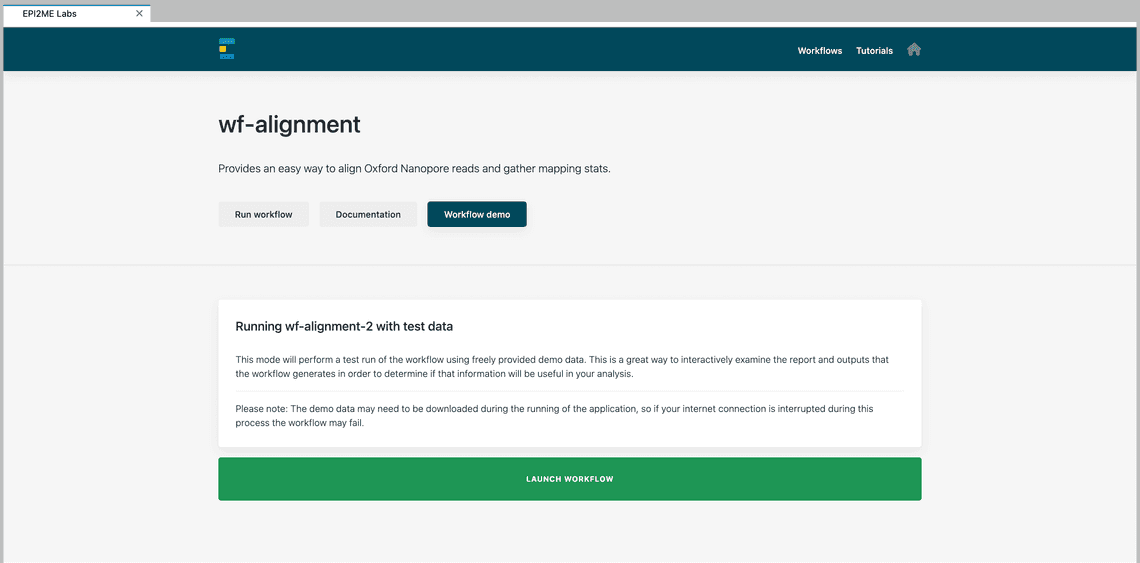EPI2ME Labs 22.07.01 Release
Dear Nanopore Community
We are pleased to release a collection of EPI2ME Labs updates that include new workflows, improved workflows, new functionality, and a couple of bug fixes.
A new human genetic variation workflow, wf-human-variation, has been released with version v0.1.0. This integrated workflow identifies both single nucleotide polymorphisms and structural variations from human whole genome sequencing data. The workflow supports “uBAM” (unaligned BAM) as an input data type and additional functionality, including methylation analysis, will be included in a future update.
wf-human-sv, the workflow for the detection of human SV has been updated to version v1.0.0. With this release the sequence mapping method has been updated to minimap2 and the SV detection step now uses the Sniffles 2 software. More information may be found in the workflow’s CHANGELOG.
wf-human-snp for the analysis of germline human SNPs has been updated to version v0.3.2. This update includes an update to the bundled version of longphase and improvements to the workflow’s online documentation. Please see the CHANGELOG for additional information.
wf-mpx, our workflow for the analysis of human monkeypox genome sequences, has been updated to version v0.0.4. This includes a minor update to accommodate a minimum depth of coverage for calling genetic differences relative to the reference sequence. Please see the workflow CHANGELOG for further information on the changes.
wf-clone-validation, the cloning plasmid sequence validation workflow, has been updated to version v0.2.2. This release includes the latest version of the pLannotate software. This version includes additional plasmid feature annotations from the protein sequence source databases e.g. RFAM and SWISSPROT. Please see the CHANGELOG for further details on the changes. This workflow has also been updated in our EPI2ME product for bioinformatics analysis in the cloud; the updated workflow is available as Fastq Clone Validation v2022.07.12.
EPI2ME Labs workflows now support “canned datasets”. In our earlier EPI2ME Labs tutorials, we provided minimal example datasets that could be used to test the tutorials and explore the results produced. The schema behind our bioinformatics workflows now supports such example datasets and example demonstration data will be rolled out across all workflows over the next few weeks. This functionality is available with the EPI2ME Labs v3.1.2 software and with the versions of the epi2melabs-notebook container >= v1.1.27.

Other updates to EPI2ME Labs platform include improvements to file browsing and input sequence selections on computers running Windows and a bug fix where result files were not visible within the EPI2ME Labs software.
Deprecation warning for SARS-CoV-2 analysis tutorial. The SARS-CoV-2 analysis tutorial that demonstrates an ARTIC based analysis of amplicon sequenced SARS-CoV-2 genomes is being deprecated. Any users who are still using this tutorial should migrate to the supported and maintained wf-artic bioinformatics workflow instead.
We welcome any suggestions for future tutorials, workflows or usability improvements.

